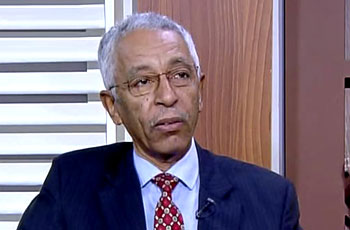The University of Khartoum Resumes Its Journey of Giving

Dr. Al-Khider Haroun
It is heartening to see that many higher education institutions in our country have strived to ensure that the brutal aggression against Sudan, represented by the devastating war that erupted on April 15, 2023, does not lead to the loss of entire generations of Sudanese youth. These institutions have adapted their operations to the pressing circumstances, maintaining a minimum level of functionality to allow continuity when the war ceases.
As signs of victory emerge, efforts have accelerated toward restoring stability by implementing post-war recovery plans. In this context, the current administration of the University of Khartoum has made significant efforts to revive the university after the shock inflicted by the outbreak of war. The university was among the first institutions to ensure the payment of salaries to its staff—within two months of the war’s onset—easing some of their hardships. It also swiftly adopted electronic learning methods to resume remote education, leading to the graduation of new student cohorts who are now embarking on their future paths. Inspired by the university’s initiative, other institutions followed suit.
The university established an office in Suakin, in eastern Sudan, and implemented a well-supported electronic system that enabled graduates and staff to retrieve their lost academic certificates due to the crisis. This allowed them to resume their professional lives and build their futures. Additionally, the university pioneered the establishment of multiple examination centers within Sudan and abroad, setting a precedent that other institutions later followed. It also collaborated with peer institutions to relocate its Translation Services Office to Port Sudan, where it has achieved great success, continuing to serve the country and its people in line with the university’s mission of community service.
Building on this momentum, the university’s Translation Unit aspires to expand its horizons and reach new heights, honoring its illustrious past and aligning with a promising future. As Sudan adorns itself with the attire of recovery, peace, and stability, it strides toward progress, dignity, and prosperity.
My connection with the Translation Unit at the Faculty of Arts dates back to past cultural and intellectual engagements. One of the most significant of these was my participation in launching the translation of the renowned scholar Professor Abdullah Al-Tayeb’s doctoral dissertation from the University of London, titled Abu al-Ala Al-Ma’arri as a Poet. The outstanding translator, a distinguished alumnus of the department, Professor Abdul Monem Al-Shadhli, masterfully translated the dissertation. His work reached a near-perfect standard, as evidenced by a meticulous comparison between the original English text and its Arabic translation. I had previously dedicated an article to this translation following the launch event, organized by my esteemed colleague, Dr. Al-Sadiq Omar Al-Sadiq, Director of the Abdullah Al-Tayeb Center. The event was attended by an elite gathering of Sudanese scholars and literary figures, including the late Professors Al-Habr Youssef Nour Al-Da’im and Al-Tijani Al-Jazouli Al-Muta’afi, as well as Professor Abdullah Mohammed Ahmed. The event was further honored by the presence of Professor Abdullah Al-Tayeb’s wife, the esteemed Jawhara Al-Tayeb.
Later, I had the opportunity to deliver a lecture at the Translation Unit to trainee judges, discussing anecdotes about translators and translation. My connection with translation, however, predates these events, as I worked as a translator for five years. I found immense joy in the field, which I see as the foundation of any intellectual renaissance. How could it not be, when the House of Wisdom (Bayt Al-Hikma), established by the Abbasid Caliph Al-Ma’mun in Baghdad—then the world’s most magnificent city—fostered translation, leading to the emergence of theological discourse, interfaith dialogue, and comparative religious studies in modern times?
I was particularly pleased to learn that Professor Abdul Monem Al-Shadhli, along with his colleagues Dr. Makki Bashir Mustafa—Chief Reviser at the United Nations Translation Department and a former faculty member at the University of Khartoum—and Dr. Al-Bashir Al-Sadiq, a renowned writer and translator in Qatar, recently completed the translation of an important book titled Unstoppable by American author Cynthia Kersey. The book, now in print, has been aptly translated into Arabic as Azā’im Lā Tuqhar (Unyielding Determination).
Just as the University of Khartoum pioneered applied sciences when it was established by colonial governor Herbert Kitchener—who founded it as Gordon Memorial College to honor Charles Gordon, the British governor slain by Mahdist revolutionaries during Sudan’s liberation—the institution evolved over time. Philanthropist Ahmed Mohamed Hashim Baghdadi funded the establishment of its medical school, and humanities studies were introduced in the 1920s. Eventually, the institution became Khartoum University College before attaining full university status post-independence. Its graduates, along with other sectors of society, played a crucial role in liberating Sudan from colonial rule and equipping the newly independent nation with expertise across various fields.
Today, in keeping with this rich legacy of initiative and service, the Translation and Arabization Unit is embarking on an academic mission in support of Sudan’s anticipated victory and liberation from the regional and international conspiracy being executed by the treacherous Rapid Support Forces (RSF). As the country transitions into a new era of emancipation, the unit is launching a scientific endeavor to help rebuild what the war has devastated, including the University of Khartoum itself—one of the first casualties, both in terms of its infrastructure and its academic mission.
I am particularly delighted that the Translation Unit is approaching this effort with such wisdom and responsibility, recognizing the need for academic and service-based contributions to national reconstruction. Notably, all proceeds from the Simultaneous Interpretation Course program will be dedicated entirely to supporting the university, with faculty members offering their services without financial gain. This is a noble and patriotic gesture, one that Sudan desperately needs in these difficult times. Indeed, all institutions—whether academic, governmental, or private—should adopt similar initiatives, ensuring that every capable individual plays a positive role in the country’s recovery.
These words are merely an expression of admiration for this initiative and the forward-thinking vision behind it.
May Allah guide our steps and grant success in achieving our aspirations.



